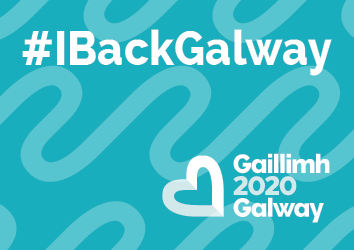Darach Mac Con Iomaire – Writer, Director
Darach is a writer and director, and currently a commissioning editor for TG4. He wrote the series Corp + Anam, which won an IFTA in 2011 and 2015, and was previously artistic director of An Taibhdhearc.
More from...
Tell us about your background
I was born and bred in South County Dublin. My father's from Connemara; my mother's from Leitrim, so we were brought up with Irish in Dublin. We always came back to Connemara on holidays. I came to college in Galway in 1996 to do Arts and I never finished it because I fell into the Cumann Drámaíochta in UCG, and got whatever education I got through that. I was messing with theatre in first year in college and spent about two years in Ros na Rún, kind of acting, if you can call it that. It was a great experience and thankfully, I got out of that early after two years. I left Ros na Rún to finish my degree, to go back and do third year. The same week as I started my degree year, Gearóid Ó Tuathaigh, the Chairman of An Taibhdhearc at the time, approached me and asked me if I'd go in as an artistic director of An Taibhdhearc. I was only 21 or 22, so I was totally blissfully unaware of the politics of An Taibhdhearc and the theatre circuit in Galway. I had set up a theatre company before that and had written a play. We were brought up in our house to be quite independent, so it never occurred to me to give the play over for anyone else, so I said I'd better do it myself, for better or for worse. So I set up a company, did a play, toured the country. The irony of it was Gearóid Ó Tuathaigh was my history professor from my degree year and he was also chairman of the board of An Taibhdhearc.
And he plucked you out of your course...
...And then failed me on my degree, and fair play to him; he was dead right - I hadn't done anything. It was like Santa Claus, someone giving you theatre and no pressure. If you got a job now in something like that, you'd have this onus of 'Oh my God, I've a year to prove myself. I need to do this, this and this', and people are really doubtful and dubious. But I was so young, so green, so absolutely naive. I hadn't a clue - no one expected anything of me, no one barely knew the appointment had even been made, so there was no pressure, and there was total freedom to learn and to learn on the job. As a result, we just ended up having a theatre, a budget and a heap of like-minded people around you and suddenly, everything was possible. We made a heap of mistakes and wasted a load of money on stuff that wasn't good, but learnt an awful lot. It was a great opportunity. So I was five years in the Taibhearc, then got kicked out; all the staff got made redundant.
There's a pattern with any institution in which the same people are running it for too long. It's very simple; we're all human, we all run out of energy, we all run out of ideas and we all begin to feel like we actually have ownership over things; no one should have ownership over theatre. It's funny how this perverse sense of ownership and entitlement can creep up on all of us when we're somewhere too long. The same is true with the Abbey, with any institution; things need to keep moving, new energies coming in all the time. With any institution that's state-funded, it's really important, I believe, to have a throughput of personnel regularly, just to keep the windows open. Because it's no fault of anybody, it's just the nature of organisations; things get stale. And it's not necessarily all about young people, because as I get older, I realise that all good things aren't just the preserve of the young, up and coming. It's giving different people, different voices, a different platform.
So I left An Taibhdhearc and I went freelance directing for a year, then spent 8 or 10 months with the National Association of Youth Drama in Dublin (NAYD), which was an eye-opener. It was brilliant. I'm really happy I was kicked out of the Taibhearc, because had I not been kicked out, I may have still been there and just as bad as anyone else who's there in an institution for too long. While I was there, I hadn't seen any theatre bar the theatre I was directly involved in myself, and obviously, you become tired and insular-looking. I went to NAYD for the year and that was really interesting. The brief was to see every theatre production in the country at the time. I abused that remit in the contract, as in I literally saw every theatre production in the country. In those ten months, I saw over 110, 115 plays - that was a fabulous education. To be exposed to other people's work was a tonic and an injection of potential and also learning from other people's mistakes, which is fun. It's interesting to see how other people do stuff and it's really daunting when you see other people's work that's so good that it actually challenges you to the core and you think, 'God, will I ever be able to do stuff that's so original and so good and so bold?' and then you see other stuff and you go, 'Oh my God, how was that even made?'. It works both ways. So that was great.
After that, I got a call from a fella called Paddy Hayes; he's an independent producer with a company called Magamedia in Furbo. At the time, TG4, in their infinite wisdom, realised that they were depending on a glut of very small independent production companies - a lot of which were based in Gaeltacht areas that were maybe one or two people organisations - very small. When these companies got a commission off TG4, the whole human resources of the company was consumed by realising that commission, so then you realise the commission, you deliver the tape and two years later, they go bang. Then the company's back to square one -nothing on the slate. It's like pushing a rock to the top of the mountain and it's just coming back down and you just have to start from scratch again; the company isn't developing, there's no time or resource for outside thinking or creative thinking, of - 'How can we develop? Business-wise, creatively, how can we broaden our scope until we become more ambitious?' It was a catch 22. So they said 'OK, we need to invest in the companies', so they came together with Udaras na Gaeltachta and they funded ten jobs - TG4 paid a third of the salary and Údarás na Gaeltachta paid a third of the salary. So Paddy Hayes asked me if I'd put in on the scheme, we interviewed for it and we got it. I got paid €45,000 for two years to write. I had two years, at a desk, in an office and I knew that at the end of every month, I was going to get €2,700, after tax, into my bank account. Suddenly, I didn't have this loaded gun at my temple - 'be creative, earn money'. I could go, 'OK, the money's looked after'. As a result of that, I was given the opportunity to go from theatre writing, directing and producing to writing and developing for TV. Out of that came the drama series, Corp + Anam. Only for that direct intervention and investment, I'd probably be back teaching again. Then the crash happened, so that scheme did not go ahead. There's loads of people since that have missed that opportunity, so what I'm trying to do at the moment is to get that scheme back up and running. I think the Galway City Council should employ at least ten artists, pay them a minimum €45,000 a year - an average of what a school teacher or a guard or a nurse would get paid. Even if you were to add taxation of .25 per cent onto the corporation tax for the pharmaceutical industry, for example - the big companies. It's possible.
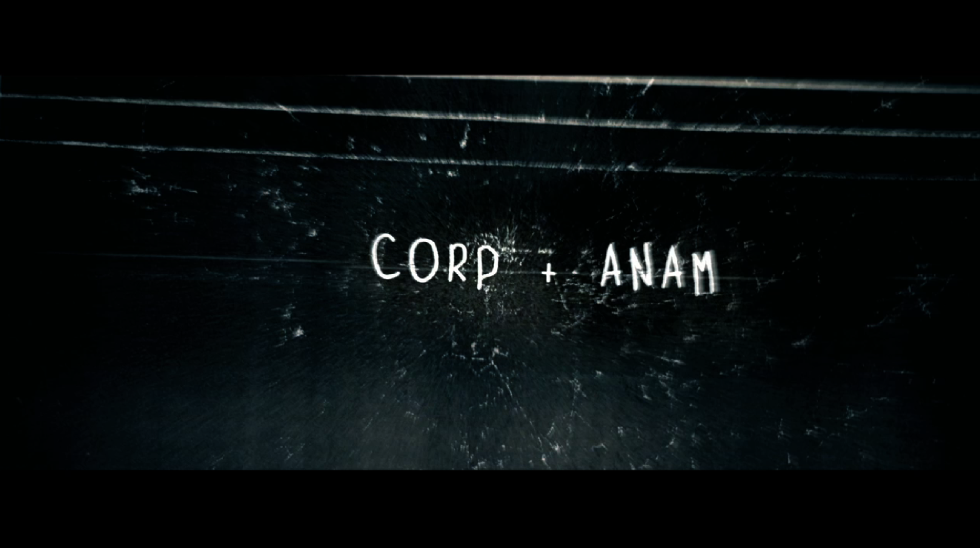
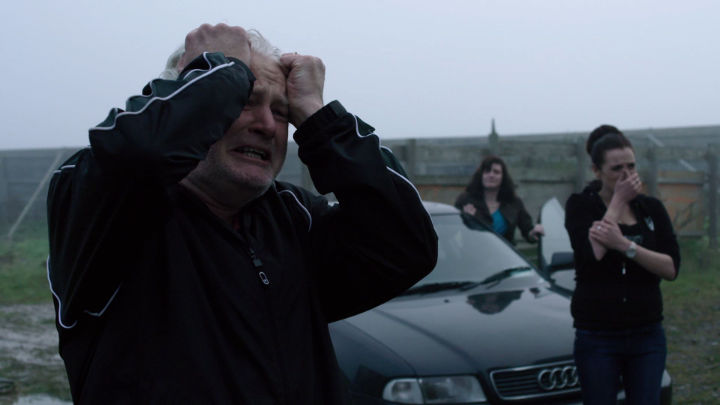
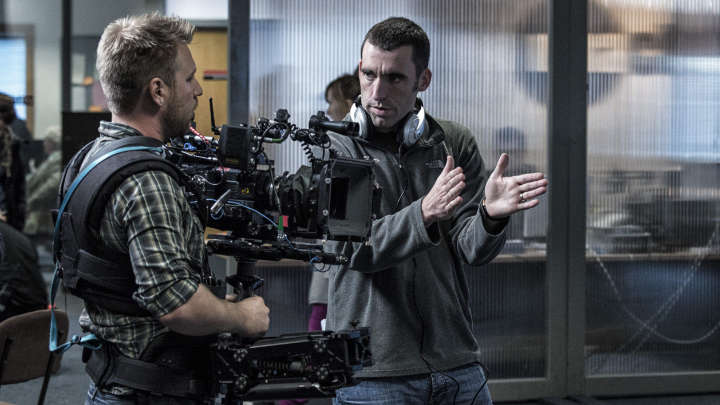
We wrote the first series or Corp + Anam under that scheme, and then the good days ended. We wrote the second series as freelance, but it is actually impossible to earn a living as a professional writer in this country, except for the very few. And it's not about talent, it's about luck. It's not good enough, because there's so much talent and it's totally wasted, going down the swanny because there are no professional structures there to create employment. The IDA should be investing in artists. This whole notion that artists don't have to earn, but if you're doing some other trade or skill, of course you're paid. If Galway, as a city and as an entity, is really committed to what the arts mean to the city and county, and how integral the arts image is for the city especially, surely they should put their money where their mouth is? If they want the city to be vibrant and if they want artists to be able to live in the city, then they need to produce employment opportunities for artists, and serious employment opportunities that give a proper wage. It's all about time; you can't create in two weeks. You need to be able to put time aside. Even the Arts Council bursary of €15,000. How much do these guys get paid a month themselves? Do they ever do the maths in terms of dividing what they're giving artists by their own monthly wage ? They're saying there's a dearth of writers; of course there is. If you don't put any food in the fish tank, you'll have a dearth of fish as well. It's a very simple correlation. The talent is there - the opportunity is missing. So what's really necessary is a bit of vision in the halls of decision making to realise that yes, artists need to live and good art doesn't come from suffering. I don't believe that at all - it comes from freedom of mind and freedom to engage with the subject yourself.
It does seem like it's a game for the young and carefree
You really do see the fall off. Those magic days when you don't have dependents and it's just yourself and you don't have to go home, you can just party and have the craic, and you're only responsible for yourself - that's great; you can scrape by. But it's impossible to keep going, and your creative days are only beginning, I believe.
So you're commissioning editor with TG4 at the moment
It's really interesting, I'm choosing the work that will be made, so I'm at the other side of the table. I've been writing for the last four years solid and it's getting more and more difficult, so a post came up in TG4, one of the commissioning editors was going out on family leave, so I applied for it. It's an eight month contract and I've just started that. It's interesting because now, I'm on the other side of the table where people are coming in pitching ideas to me. I feel I need this at the moment, after years of working on my own in what is basically a shed on the side of a mountain in Connemara. I'm literally on my own all day every day from 9 until 6, looking out at the odd sheep. You can kind of go out of your mind. So it's good to come back and work with people again and it's good to have creative input coming this way as opposed to that way. I'm really enjoying it, but it's a huge responsibility as well, because the independent production sector is literally on its knees at the moment. There are so many companies that are this close to going under and not coming back.
What's the difference from writing for theatre to writing for TV?
I'm commissioned at the moment by the Abbey to write a play for them. It's terrifying, but I think I've made a breakthrough, so I'm slightly less freaked about it. The biggest struggle I have writing at the moment is going from multi-part dramas, where you have eight hours to tell a story, to a 90-minute feature film. With eight hours, you can go wide and deep, tell all these interlinked stories and create a really strong bond of empathy through that time with the main character and the audience. Then you come to writing a feature film in Ireland and usually, you'll only be able to fund about 90 minutes. So you have 90 pages to create the same rock solid bond of connection between the audience and the protagonist, but you have only 90 pages - about an episode and a bit. That flummoxed me. I'm grappling with a feature project for the last four years, just on that fact. Then I was terrified coming back to theatre, because the added obstacle there is that you're limited too. It all comes back to the story, of course. If you have a story and a premise that's solid and works, it will work.
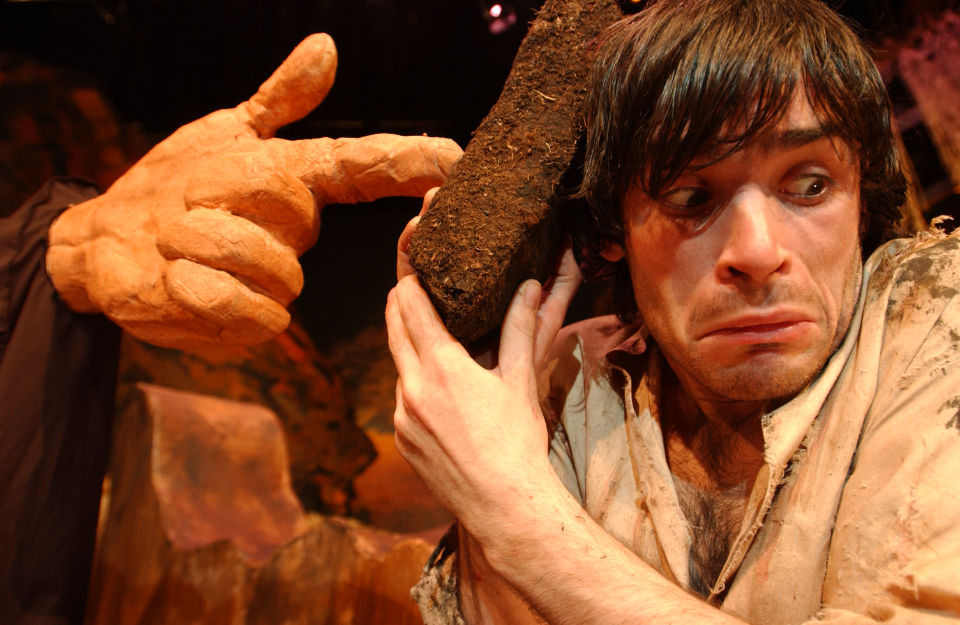
Do you have a beginning, middle and end before you start writing?
That's the biggest thing. I remember starting writing a play years ago. Character A would say 'Blah blah blah, and character B, would say 'blah blah, blah', and then, character A could say something really clever etc. But you don't know where you're going with it and it all becomes really arsey because you're writing clever dialogue, stupid puns, and it's a play on words; there's no story structure to it. It's just a nightmare; you'll never finish it. If you start writing from the outside in, very rarely will you actually find the characters because you're too busy thinking about what they're saying as opposed to what they want. You'd have the whole story plotted out beat by beat by beat and you'd have it written to such an extent. The great thing about writing it that way is that the more times you imagine the scene, the less dialogue it ultimately needs, so that when you write the first draft, it's maybe the 15th draft but it's the first time you're writing dialogue. At that stage ,the story is actually really, really, really tight. It should be a page turner, so writing the dialogue for that is a joy because you just basically condense what's there into stage direction. Then you might only need a one syllable nod and that scene works. It will work in action visually and it's not just dialogue - talking heads. A lot of drama and in the soap world we live in, is just dialogue and there's no subtext. If you start with the dialogue, you're doomed. Doomed, I believe.
When I was working with Paddy Hayes under the scheme, they funded any training course you wanted to do, and I went to London to a four-day course with Robert McKee, this 80-year-old Hollywood script guru. He's absolutely fabulous and he blew my mind. At the time, I had the idea of Corp + Anam in my head. I had written the first draft of the first script, but it was way too long and instinctively, I knew there was something good there, but I didn't have the confidence in my own craft that I was able to pull it off. I had this horrible fear that the script would be taken off me and given to a proper writer to write properly, and they'd say 'stop your messin', this is going to cost me to make and who do you think you are to call yourself a writer?'.
So the course was really intense; about 500 people in a cramped lecture theatre for about 11-hour sessions over four days. He's profane, he's a bit of craic, but he's absolutely on the button in terms of story. He'll do two things - tell you how to read your own script and tell you what's wrong with it before you give it to anybody, and the tools to be able to self-appraise your work, which is so important. He also taught that what you know instinctively is actually the right approach, and explained why. That is invaluable, for someone to give you confidence in your own instincts.
It's a confidence game, this, isn't it? Anything creative, you're on your own, it's in your head. You really have no idea if it's any good or if it's going to work. Then when you manage to convince people to give you money. It's always terrifying - the pitches. You're talking everything up and you're saying, 'Yes, we'll do this, and then we'll do that and it'll be brilliant' and then they go, 'OK, here's the cheque' and you go, 'Oh my God, they actually believed me' and you're walking out of the room going 'Christ, I have to do this now'. Then the fear gets into your head and if you don't have the wherewithal to be able to manage that fear, it can totally eat you. It ate me once; there was one project I was working on with Macnas; the fear got to me and it killed the project. The fear got under my skin and rattled me too much. I don't think it was writer's block; I think it was just terror, pressure.
You also play music, the violin...
I played with Kila for two years on tour in 2008/2009. That was a really interesting eye opener.
Fun?
Mental. I know all the lads, we were all in school together; they're a bit older than me. My brother, Colm, used to play with Kila before he went to The Frames. So we were doing these trips and it was mad - checking in with 12 lads onto a Ryanair flight with 45 cases of gear. It's mayhem and it's just hassle. No sleep, you're on the flight, you get over and then you're taking all the gear out and then you're loading onto a mini bus and then the 12 lads get into the mini bus and you're driving three hours on the other side in North Spain or somewhere. Then you're loading up, you're doing a soundcheck on stage, you're doing a gig, then you strip all the gear out, then you have a few minutes just to defrag your head. Then you're back on the bus, you're back in an airport and you're back at the check-in desk with 12 lads who are grumpy and haven't slept. You get on the flight and then the same shit happens again. So it's mad, but it was a Godsend, because it actually kept me going before we got the funding.
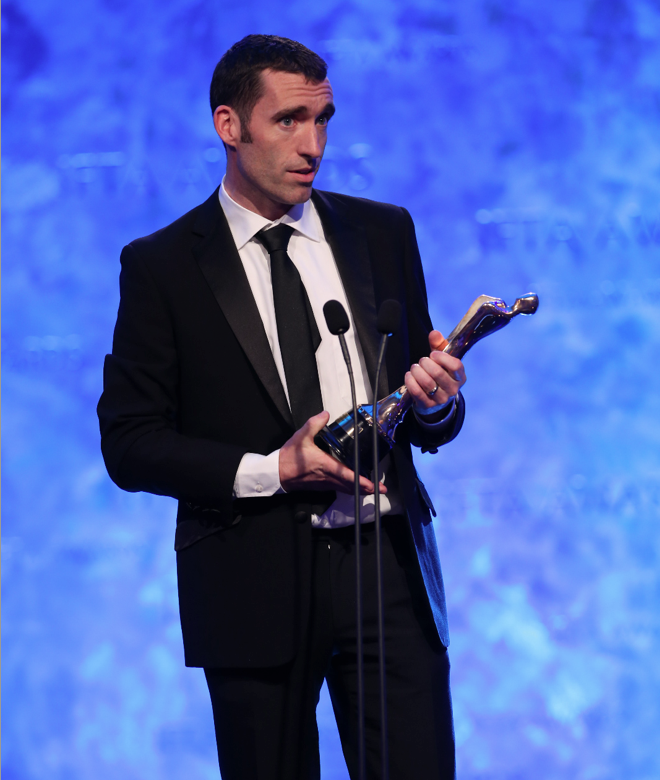
You've been here for 20 years - what do you think about Galway in terms of being an environment for living and working in?
Coming back from Dublin and NYAD, the office was at the top of Gardiner Street, just on the corner of Gardiner and Dorset Street, which is pretty grim. It was an hour in the car every morning, and an hour back in traffic. Then I'd be coming back and driving out to Furbo to Paddy's office. I remember the first morning going, 'Oh my God, look at this' and looking out over Galway Bay and looking out over the Burren and thinking, we definitely drew the good straw. It's amazing; everything about it. It's just such an easy place to live. I'm bringing my family up with Irish and it's great to be somewhere where there's so much Irish naturally in the locality; it's no big deal. I don't think I've ever had a proper job in the English language - the Irish has been good to me. Also, because the college is here, there's such a buzz. I don't know if it's because of the university and the GMIT with all its students, but you have this energy, and then with the river constantly flowing through the city. It's always changing. Galway definitely feels like a place where people are constantly coming and going.
- Donal McConnon - Previous
- Next - Declan Gibbons
